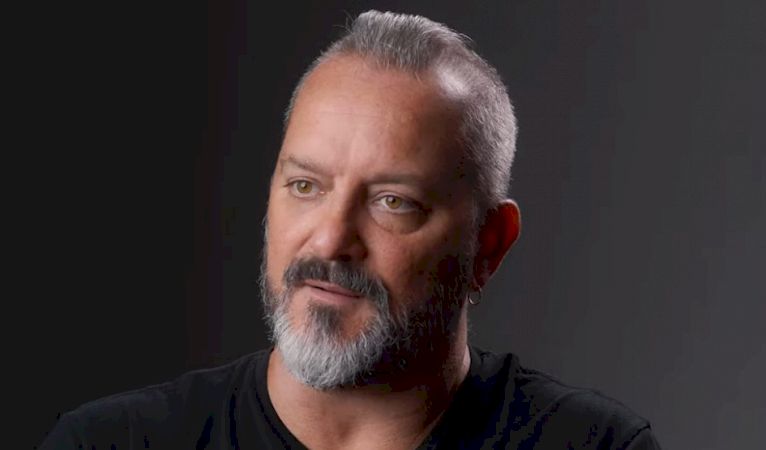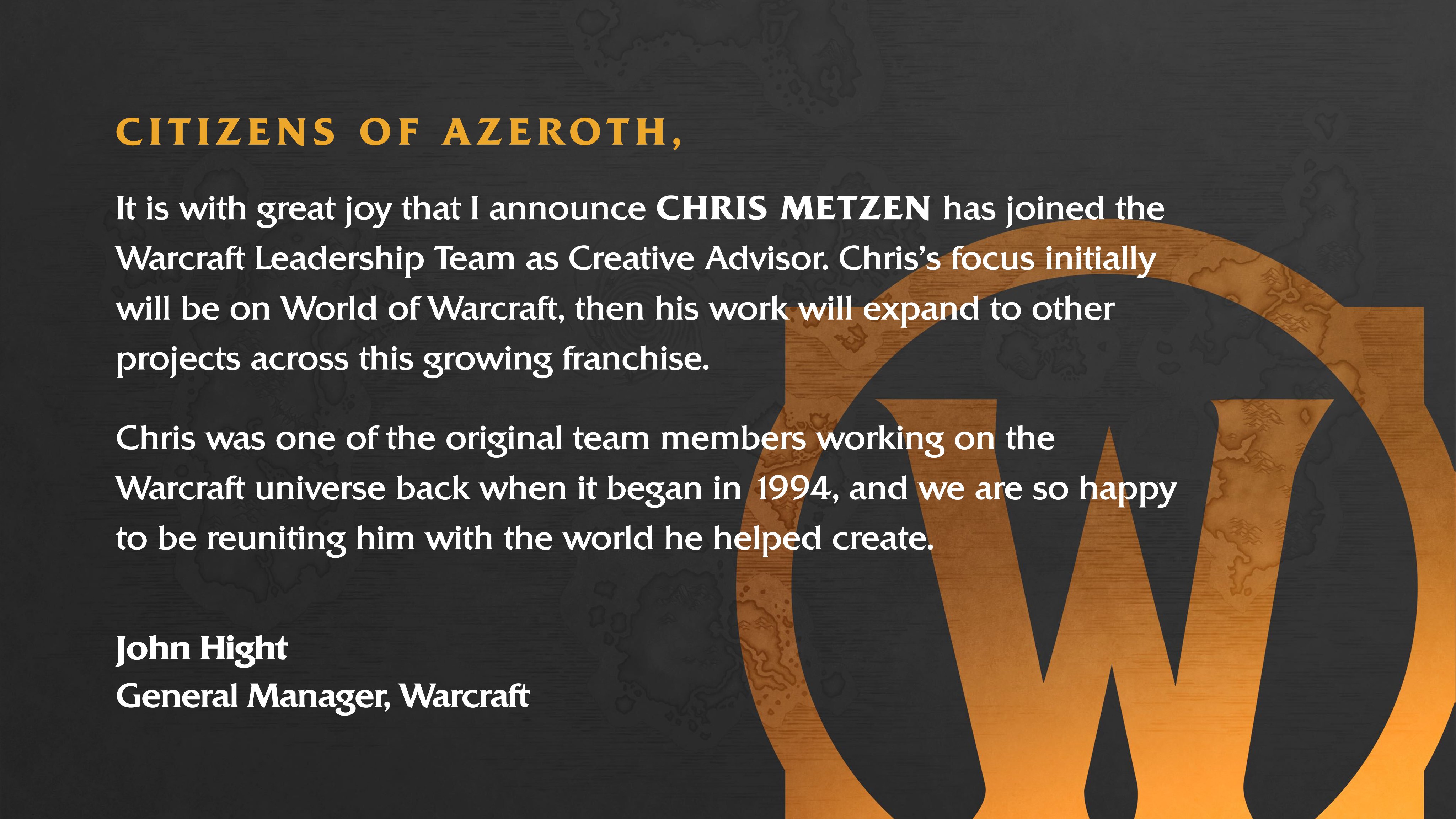
Authentic World of Warcraft artistic director Chris Metzen, who left Blizzard in 2016 after a 23-year profession, is coming again. Warcraft franchise basic supervisor John Hight revealed the large information on Twitter, saying that Metzen has joined the “Warcraft Management Group” as artistic advisor.
“Chris’s focus initially can be on World of Warcraft, then his work will increase to different initiatives throughout this rising franchise,” Hight wrote. “Chris was one of many authentic workforce members engaged on the Warcraft universe again when it started in 1994, and we’re so completely happy to be reuniting him with the world he helped create.”

Metzen had a exceptional run at Blizzard, where he labored on the studio’s foundational video games. Mobygames lists his earlier credit score as documentation and “handbook illustrations” for the unique Warcraft: Orcs and People; from there, he amassed writing, design, and manufacturing credit on the Warcraft sequels and World of Warcraft, in addition to the Diablo video games, StarCraft, Hearthstone, and Overwatch.
When Metzen left Blizzard in 2016, he was very close to the highest of the heap, holding the place of senior vp of story and franchise improvement. And, not like a lot of his Blizzard compatriots (like Ben Brode, for example), Metzen was not moving on to different issues—he straight up retired.
He did ultimately get again into the gaming enterprise, with a tabletop RPG known as Auroboros: Coils of the Serpents introduced in 2021. Sadly, 2021 was additionally the yr that Metzen apologized for failing to take motion to halt widespread discrimination and sexual harassment at Activision Blizzard. Metzen hasn’t been publicly implicated in any wrongdoing, however mentioned in July 2021 that he and others in management positions at Blizzard “failed too many individuals once they wanted us as a result of we had the privilege of not noticing, not participating, not creating obligatory house for the colleagues who wanted us as leaders.”









